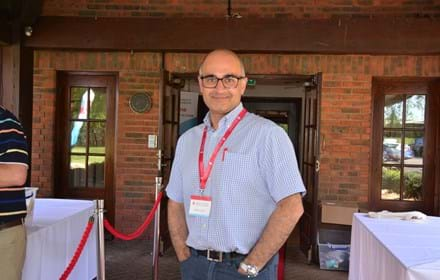
NHS diabetes professor slams virus hoax claims
Doctors respond to social media posts that Covid-19 pandemic is fictional.
NHS staff in Portsmouth have spoken out in response to “disrespectful” claims made on social media that a hospital was “quiet”.
In contradiction to facts around rising numbers of people diagnosed with coronavirus ahead of the latest lockdown measures aimed at preventing further spread a woman posted images on a social media website claiming Queen Alexandra Hospital in Cosham was the “quietest I have ever seen it”.
Figures from NHS England show that as of 8am on 29th December there were 342 beds occupied by patients with Covid-19 at the hospital, up from 134 on 29th November. A month earlier than that there were just 35.
Around a third of general and acute beds are occupied by patients with Covid-19.
Professor Partha Kar was recently awarded an OBE for services to people with diabetes
Professor Partha Kar, National Specialty Advisor for Diabetes with NHS England and Consultant in Diabetes and Endocrinology at Portsmouth Hospitals NHS Trust, said: “We have rheumatologists, dermatologists, endocrinologists cancelling clinics to help on general & surgical wards to cover for medical patients.
“Due to extra pressure on all other teams. This is not fictional.”
The images published on Facebook were largely of corridors, that did not show the restricted access Covid-19 wards, which are kept separate from general access to prevent infections spreading
Mark Cubbon, Chief Executive of Portsmouth Hospitals University NHS Trust, said: “Saddened to see messages on social media suggesting our wards are empty and pressures we say we’re facing are fictional.
“We’re treating (increasing numbers of patients) with Covid-19.
“Our staff are doing an incredible job under a great deal of pressure. Please don’t disrespect them.”
The NHS has released guidance to update people on the safety of the covid-19 vaccinations being rolled-out across the UK.
NHS: Why vaccination is safe and important
Vaccines are the most effective way to prevent infectious diseases.
The NHS has published a reminder how vaccines work, what they contain and the most common side effects.
An NHS statement said: “Important: Be aware that anti-vaccine stories are spread online through social media. They may not be based on scientific evidence and could put you at risk of a serious illness.”
I would like to make a regular donation of
I would like to make a single donation of
There are lots of ways to raise money to support
people living with all forms of diabetes.
Bake, Swim, Cycle, Fly ... Do It For DRWF!
Fundraise with us
Recent News


